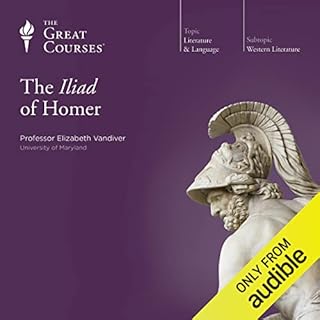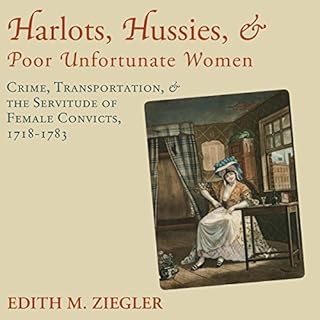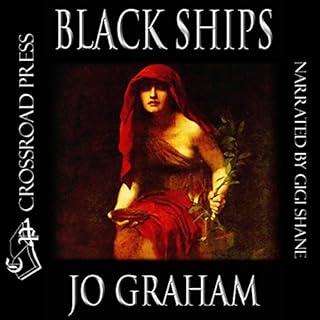Christine N. Ethier
- 5
- opiniones
- 6
- votos útiles
- 8
- calificaciones
-
Hut 33: The Complete Series 1-3
- The Hit BBC Radio 4 Comedy
- De: James Cary
- Narrado por: Alex Macqueen, Fergus Craig, Lill Roughley, y otros
- Duración: 8 h y 24 m
- Grabación Original
-
General4.5 out of 5 stars 59
-
Narración:4.5 out of 5 stars 55
-
Historia4.5 out of 5 stars 55
Set during World War Two, Hut 33 follows the adventures of a team of codebreakers at Bletchley Park as they work tirelessly to break German codes, matching wits with the fabled Enigma Machine. Unfortunately, they hate each other. Archie is a stroppy Geordie socialist revolutionary while Professor Charles Gardner is a toffee-nosed snob. In theory, the immensely stupid 3rd Lt. Joshua Featherstonhaugh-Marshall is in charge of the hut, but he is still struggling with even the most basic concepts....
-
5 out of 5 stars
-
I have always Loved BBC Humor
- De Amazon Customer en 05-21-18
- Hut 33: The Complete Series 1-3
- The Hit BBC Radio 4 Comedy
- De: James Cary
- Narrado por: Alex Macqueen, Fergus Craig, Lill Roughley, Olivia Colman, Robert Bathurst, Tom Goodman-Hill
Milk snorted out of my nose
Revisado: 08-06-18
I am a sucker for anything with Olivia Colmen, so of course I got this. Hut 33 is about a group of people during WWII who are suppose to be cracking codes, but other things happen. Like class warfare, the visit of a royal, or even air raids. The acting is great, the lines wonderful. Do not drink while listening.
Se ha producido un error. Vuelve a intentarlo dentro de unos minutos.
Has calificado esta reseña.
Reportaste esta reseña
esto le resultó útil a 3 personas
-
The Iliad of Homer
- De: Elizabeth Vandiver, The Great Courses
- Narrado por: Elizabeth Vandiver
- Duración: 6 h y 4 m
- Grabación Original
-
General5 out of 5 stars 1,665
-
Narración:5 out of 5 stars 1,472
-
Historia5 out of 5 stars 1,463
For thousands of years, Homer's ancient epic poem the
Iliad has enchanted readers from around the world. When you join Professor Vandiver for this lecture series on the Iliad, you'll come to understand what has enthralled and gripped so many people. Her compelling 12-lecture look at this literary masterpiece -whether it's the work of many authors or the "vision" of a single blind poet - makes it vividly clear why, after almost 3,000 years, the
Iliad remains not only among the greatest adventure stories ever told but also one of the most compelling meditations on the human condition ever written.
-
5 out of 5 stars
-
Vandiver never disappoints
- De Machteacher en 07-23-13
- The Iliad of Homer
- De: Elizabeth Vandiver, The Great Courses
- Narrado por: Elizabeth Vandiver
I would love to be in her actual class
Revisado: 08-06-18
Dr. Vandiver's course on the Ilaid is wonderful. She has a sense of humor, and the love for the subject comes clearly across. She offers insight to the events and characters of the story. If you haven't read the poem at all or if you haven't read it lately, the course is still easy to follow for there is a summery. She will make you want to re-read the poem.
Se ha producido un error. Vuelve a intentarlo dentro de unos minutos.
Has calificado esta reseña.
Reportaste esta reseña
esto le resultó útil a 1 persona
-
A Ray of Light
- Reinhard Heydrich, Lidice, and the North Staffordshire Miners
- De: Russell Phillips
- Narrado por: Anthony Howard
- Duración: 1 h y 15 m
- Versión completa
-
General4.5 out of 5 stars 10
-
Narración:4.5 out of 5 stars 10
-
Historia4.5 out of 5 stars 10
Lidice was a peaceful and vibrant community in Czechoslovakia with a rich mining heritage. But an act of Nazi revenge saw this village wiped from existence in a horrifying chapter of European history.
-
5 out of 5 stars
-
Amazing book that brings to light a tough time
- De Daman en 10-28-16
- A Ray of Light
- Reinhard Heydrich, Lidice, and the North Staffordshire Miners
- De: Russell Phillips
- Narrado por: Anthony Howard
Well worth a listen.
Revisado: 10-03-16
Disclaimer: A free copy of this audio book was provided by the author in exchange for a fair and honest review.
The massacre of the village of Lidice is perhaps one of the most infamous and least known massacres of World War II. Infamous because Hitler ordered the destruction of village to avenge/punish the Czechs for the death of Heydrich due to Operation Anthropoid, though there was no connection between the men involved in the assassination and the town. The men of the town were killed, the women and children evicted, some of the children even being placed into Nazi families. There is a movie, Anthropoid, that deals with the build up to the assassination and the aftermath. It is hardly surprising that this book is released at the same time.
Phillips book not only details the plot and the immediate aftermath, but also focuses on the connection between Lidice and Stoke-on-Trent and other Stratffordshire. It seems that after news of the massacre reached Stoke on Trent, the miners decided to help another mining town.
Phillips’ book seems to come out of his discovery of the story along with a desire to make sections of the story more well known. He includes the basic events leading up to the assassination as well as the massacre at Lidice itself. Then he looks at what prompted the miners to raise funds to rebuild the town. He considers the impact of the Cold War on the relationship between the two towns as well as more recent efforts to broaden knowledge of the massacre.
The book is short, but packed with detail, including where to go for more information. Perhaps the weakest part of the audio is the narrator who at times seems to be lisping, though this could have been a recording issue.
Se ha producido un error. Vuelve a intentarlo dentro de unos minutos.
Has calificado esta reseña.
Reportaste esta reseña
-
Harlots, Hussies, and Poor Unfortunate Women
- Crime, Transportation, and the Servitude of Female Convicts, 1718-1783
- De: Edith M. Ziegler
- Narrado por: Sally Martin
- Duración: 8 h y 7 m
- Versión completa
-
General3.5 out of 5 stars 18
-
Narración:3.5 out of 5 stars 18
-
Historia3.5 out of 5 stars 18
Great Britain's forced transportation of convicts to colonial Australia is well known. Less widely known is Britain's earlier program of sending convicts - including women - to North America. Many of these women were assigned as servants in Maryland. Contemporary readers and scholars will be fascinated by Ziegler's explanation of how gender-influenced punishments were meted out to women and often ensnared them in Britain's system of convict labor.
-
5 out of 5 stars
-
What if criminal justice was unchanged since then?
- De MolllyT en 08-01-15
- Harlots, Hussies, and Poor Unfortunate Women
- Crime, Transportation, and the Servitude of Female Convicts, 1718-1783
- De: Edith M. Ziegler
- Narrado por: Sally Martin
Detailed look at little known aspect of history
Revisado: 08-02-15
Disclaimer: “I was provided this audio book at no charge by the author, publisher and/or narrator in exchange for an unbiased review via AudiobookBlast”
There is a tendency in America to forget about certain key aspects of our history. No, I am not just talking about those people who forget what the Confederate Flag stands for, but I am also talking about the history pre-Independence. At times, it seems as if Americans think the only country made up of transported criminals is Australia. They forget that criminals were transported here, to a lesser degree and under slightly different circumstances, but brought here against their will, with more hope than those take in the African slave trade.
Ziegler’s book is an attempt to put this to rights. It’s true that her book isn’t the first to focus on the topic, and her introduction points out several books that the reader can track down for more general information. The focus of the book, however, is on the women who were sentenced to labor in the Colonies, in particular Maryland, for a span of 7-14 years depending on the verdict.
What this means is a woman found guilty of a crime (usually it seems, though not always, robbery) would be transported to the colonies from England, where her contact (her labor) would be brought be a colonist. After the term was over, she could return home or wherever. If she got pregnant while under penalty, additional time was added as it was if she escaped. Such women would be put to work in the fields or the house, sometimes working side by side with slaves. Sometimes the women gave birth to children whose fathers were slaves (and what happened to these children seems to be all about original sin).
Because of the subject, there isn’t one single strand or story to follow. What Ziegler does instead is far more comprehensive. She starts with the situations that might have lead women to not only to be in court but also how the system worked (for instance, the time spent in jail waiting for transport to the colonies was not counted as part of the sentence). She compares various sentences. Then there is a discussion about transportation and arrival as well as about the work that the women were given. Ziegler than discusses escape.
Perhaps the most heartbreaking part is the section on what happens after the women served their sentences and, in some cases, returned home to families that were grown or husbands that had moved on (just as their male counterparts returned to wives that had moved on). In some cases, the women stayed in the colonies, sometimes due to children, sometimes not.
Overall, while detailing a variety of information and various stories, the book flows well and the writing is engaging.
Sally Martin’s reading reminds one of Wanda McCaddon. Martin’s voice is a perfect match to the subject matter. While some of the stories will make the reader and/or listener want to smack someone, Martin does not let anger or another overwhelmingly emotion into her reading. This enables the reader to actual take in the information. It really is a reading and not a lecture.
Se ha producido un error. Vuelve a intentarlo dentro de unos minutos.
Has calificado esta reseña.
Reportaste esta reseña
-
Black Ships
- De: Jo Graham
- Narrado por: Gigi Shane
- Duración: 12 h y 40 m
- Versión completa
-
General4.5 out of 5 stars 34
-
Narración:4.5 out of 5 stars 30
-
Historia4.5 out of 5 stars 31
The world is ending. One by one the mighty cities are falling to earthquakes, to flood, to raiders on both land and sea. In a time of war and doubt, Gull is an oracle. Daughter of a slave taken from fallen Troy, chosen at the age of seven to be the voice of the Lady of the Dead, it is her destiny to counsel kings.
-
4 out of 5 stars
-
Black ships
- De MeDi en 02-15-15
- Black Ships
- De: Jo Graham
- Narrado por: Gigi Shane
Thoughtful
Revisado: 04-12-15
If you could sum up Black Ships in three words, what would they be?
Graham starts her story with the daughter of one of the Trojan women taken by King Nestor at the end of the Trojan War. Gull starts life as the daughter of newly made slave, eventually becoming a priestess in training. Her life radically changes when what remains of her mother’s people come to rescue their women. From there, the story is that of Aeneas’ and the founding of the Roman race. This journey takes the small group across the Mediterranean.
What did you like best about this story?
Graham’s changes to Virgil and Homer make sense in terms of history, though perhaps not the Romans for Carthage does not make an appearance. Graham explains the reason for this in her afterword and her adaptation of Dido and Carthage into an Egyptian sequence does work very well. Graham does seem aware that she is pushing Gull’s role a bit too much to the forefront, and there are varying reactions from male characters to showcase that Gull is different (and Gull is not an early feminist by any means). It would have been nice if one of Gull’s close friends had been another woman, at least in the latter half of the book, for once Gull joins her people, all her equals are men. Still Gull makes for interesting center to the story. Graham’s use of Gull as a Sybil allows her to bring in fantasy elements, but with a light touch. Additionally, these elements allow Graham to explore the different faiths that were swirling around – and it makes for rather interesting and apt references.
What does Gigi Shane bring to the story that you wouldn’t experience if you just read the book?
At first, I thought she sounded too much like Siri, but as the book went along I realize that her inflection was intentional to try and capture Gull. It actually worked quite well and upon reflection, seems to be close to that of an actual oracle.
If you were to make a film of this book, what would the tag line be?
Epic
Any additional comments?
Disclaimer: The publisher of this audio book gave me a free copy in return for a fair and honest review.
Black Ships is one of those books that are going to set some people’s teeth on edge. If you are a purist when it comes to Virgil’s Aeneid or Homer’s Iliad, the chances of you enjoying this book are low. If you don’t mind changes, not only in perspective but in plot sequence, you should enjoy it.
Se ha producido un error. Vuelve a intentarlo dentro de unos minutos.
Has calificado esta reseña.
Reportaste esta reseña






